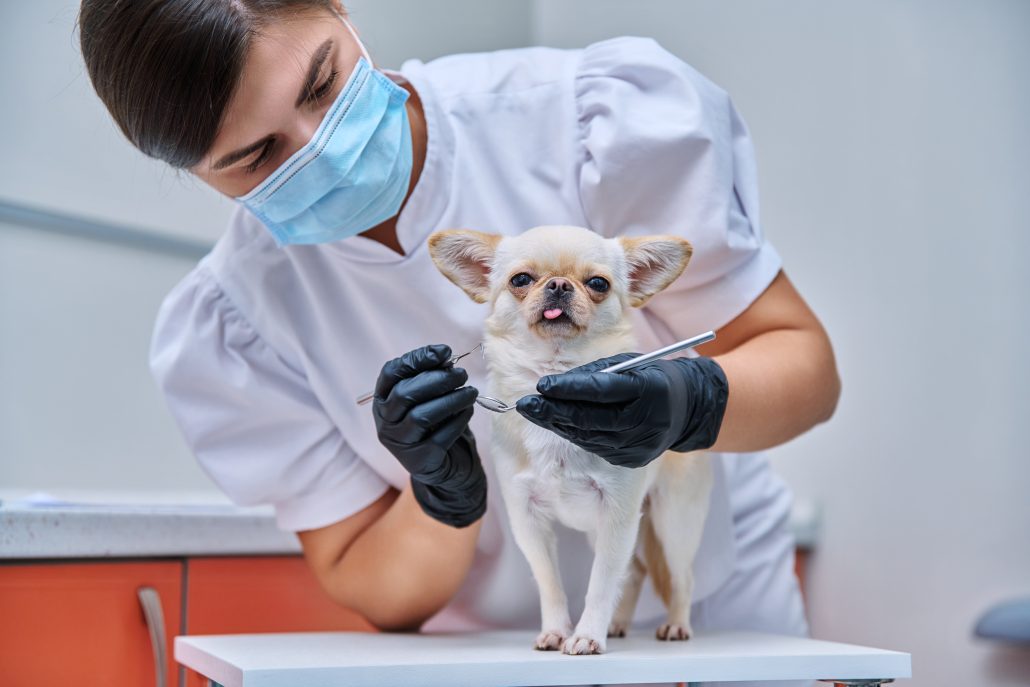As winter approaches and the temperature drops, many of us find ourselves reaching for extra layers of clothing and cups of hot chocolate. But, while we humans are no strangers to the common cold during this season, have you ever wondered if your furry companions can also catch a case of the sniffles?
In this blog, we discuss what exactly cold are in our pets and explore the signs and symptoms to watch out for, discuss preventive measures, and offer insights into the treatment options available. Read on to learn more!
Read More: Should You Dress Up Your Dog This Winter?

What Is A Cold?
Just like humans, pets can experience infections and illnesses that resemble the common cold. That is why when we refer to pets “having a cold”, it is actually a generic term to refer to a range of viruses and infections your pet may be experiencing.
While humans may experience the common cold (i.e rhinovirus), it is important to remember that they are specific only to humans and cannot be passed to dogs or cats. Similarly, dog and cat viruses
Symptoms Of A Pet Cold
There are many overlapping symptoms of colds between humans and pets, which is why there which is why there may be a tendency to associate them with similar illnesses. Common symptoms of colds in pet include:
- Sneezing
- Coughing
- Runny or congested nose
- Watery eyes
- Lethargy and decreased appetite
It’s important to recognise that there is a range of illnesses in pets that may mimic the symptoms of a common cold or flu. In dogs, these viruses are usually canine respiratory coronavirus, canine adenovirus type 2, canine parainfluenza virus, or Bordetella (also known as kennel cough). In cats, the virus with symptom that looks like a human cold is usually herpesvirus or calicivirus.
While a pet exhibiting these symptoms might initially suggest a cold, it’s crucial to remain vigilant. If you notice any additional changes in your pet’s behaviour, such as a change in appetite, fever, vomiting, diarrhoea, or other significant alterations, it could indicate a more serious underlying disease. In such cases, booking an emergency appointment with your vet is recommended.
By understanding the common symptoms of pet colds and differentiating between a mild respiratory infection and more severe conditions, we can ensure that our furry companions receive the appropriate care and attention they need for a speedy recovery!
Read More: How To Tell Your Pet Has Allergies

Risk Factors for Pet Experiencing Colds
When it comes to pet colds, there are several risk factors that can make our furry friends more susceptible to these respiratory infections. These include:
Age & immune system strength
Age plays a significant role in a pet’s susceptibility to colds. Young puppies and kittens, as well as older pets with weakened immune systems, are more vulnerable. Their immune systems may not be fully developed or may have diminished strength, making them more prone to infections.
Stress & environment
Excess stress can also weaken a pet’s immune system, making them more susceptible to illnesses like colds. Environmental factors such as extreme weather conditions, poor ventilation, and crowded living spaces can also contribute to the spread of viruses. Additionally, exposure to cigarette smoke or other respiratory irritants can further compromise a pet’s respiratory health.
Exposure to other infected animals
Pets that come into contact with infected animals, such as at parks, boarding facilities, or shelters, have a higher risk of contracting cold viruses. Viral particles can be transmitted through direct contact, airborne droplets, or contaminated surfaces. This makes it important to be mindful of these potential exposure risks and take appropriate precautions, such as vaccinations, good hygiene practices and regular vet checkups.

Caring For Your Sick Pet: Treating Colds & Flus
Is your companion feeling under the weather? It’s never easy to see our furry friends feeling unwell but with proper care and attention, you can help your pet overcome their symptoms and get back to their playful and energetic selves.
When to consult a veterinarian
If your pet’s symptoms persist for more than a few days, worsen, or are accompanied by severe signs such as difficulty breathing, high fever, persistent coughing, or significant changes in behaviour, it’s crucial to seek veterinary care as soon as possible. A veterinarian, like the experts at The House Call Vet, will be able to assess your pet’s condition, provide an accurate diagnosis, and recommend appropriate treatments to get them back and healthy.
Treating Mild Colds
For mild cases of pet colds, you can implement some at-home remedies to help your furry friend feel better:
- Encouraging rest and providing comfort: Create a cozy and quiet space for your pet to rest and recover. Ensure they have a comfortable bed or blanket where they can relax without disturbance.
- Promoting hydration and nutrition: Offer your pet plenty of fresh water to keep them hydrated. Warm broth or wet food can entice them to eat, especially if their sense of smell is affected. If your pet’s appetite is significantly reduced, consult your veterinarian for appropriate dietary advice.
- Using over-the-counter pet medications cautiously: Some over-the-counter pet medications may help alleviate certain symptoms, but it’s essential to use them cautiously and only as directed by a veterinarian. Medications formulated for humans can be harmful to pets, so always consult with a professional before administering any medication.
And remember, each pet is unique! What works for one companion may not work for another. It’s important to monitor your pet’s condition closely and adjust the treatment plan as necessary, with the advice and guidance from your vet.
Read More: Secrets To A Stress-Free Vet Visit

Keep The Winter Sniffles At Bay
As pet owners, we have a unique role in nurturing the health and happiness of our furry family members. So, the next time your pet is feeling under the weather, with your dedication, a watchful eye, and the guidance of veterinary professionals, your pet will be happy and healthy in no time!
At The House Call Vet, we understand the deep bond you share with your pets and the importance of their well-being. Our team of compassionate veterinarians is here to provide exceptional care for your furry companions in the comfort of your own home.
What’s more? With our convenient and personalised house call services, you can skip the stressful trip to the clinic and ensure a hassle-free experience for both you and your pet. Our experienced veterinarians will assess your pet’s condition, provide a comprehensive diagnosis, and recommend the most effective treatment options tailored to their specific needs.

